IGTP wraps up successful round of La Marató visits to its laboratories
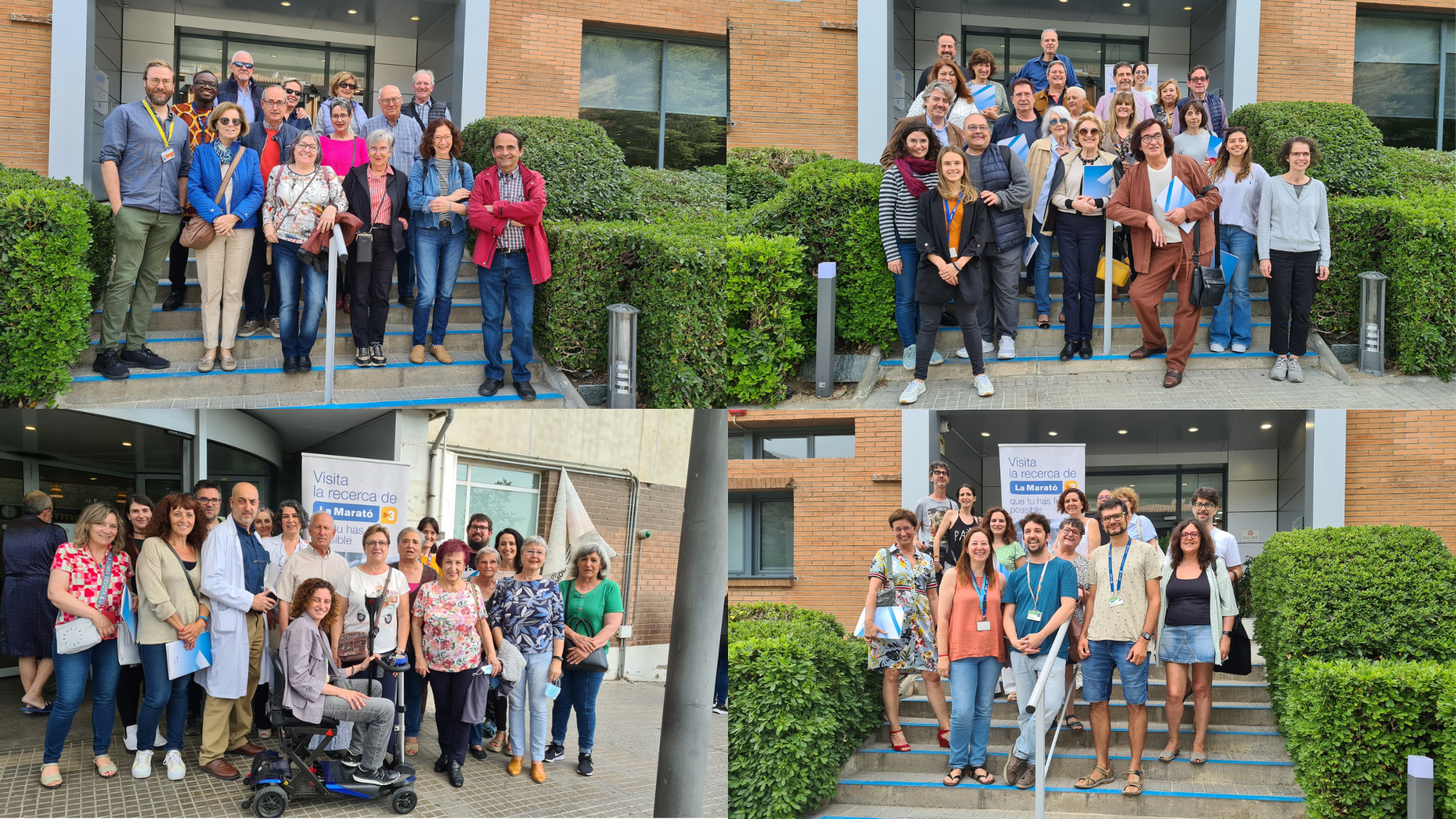
The four visits under the "Visita la recerca" (Visit the research) cycle of the Fundació La Marató de TV3 at the Germans Trias i Pujol Research Institute (IGTP) have drawn to a successful close. More than 50 collaborators have had the opportunity to gain insight into various research projects funded through this charitable initiative.
These visits represent a unique opportunity to engage directly with the public and showcase the research conducted at the institute. Moreover, these visits serve as educational platforms, raising awareness about relevant topics in the ongoing research projects. They showcase the researchers' work, and foster collaborations and connections, which may help to attract further resources. The contribution of these visits is not just limited to outreach activities; they also have the potential to make a significant impact on medical research and public health.
Do you know how COVID-19 affects people living with HIV? (20 April)
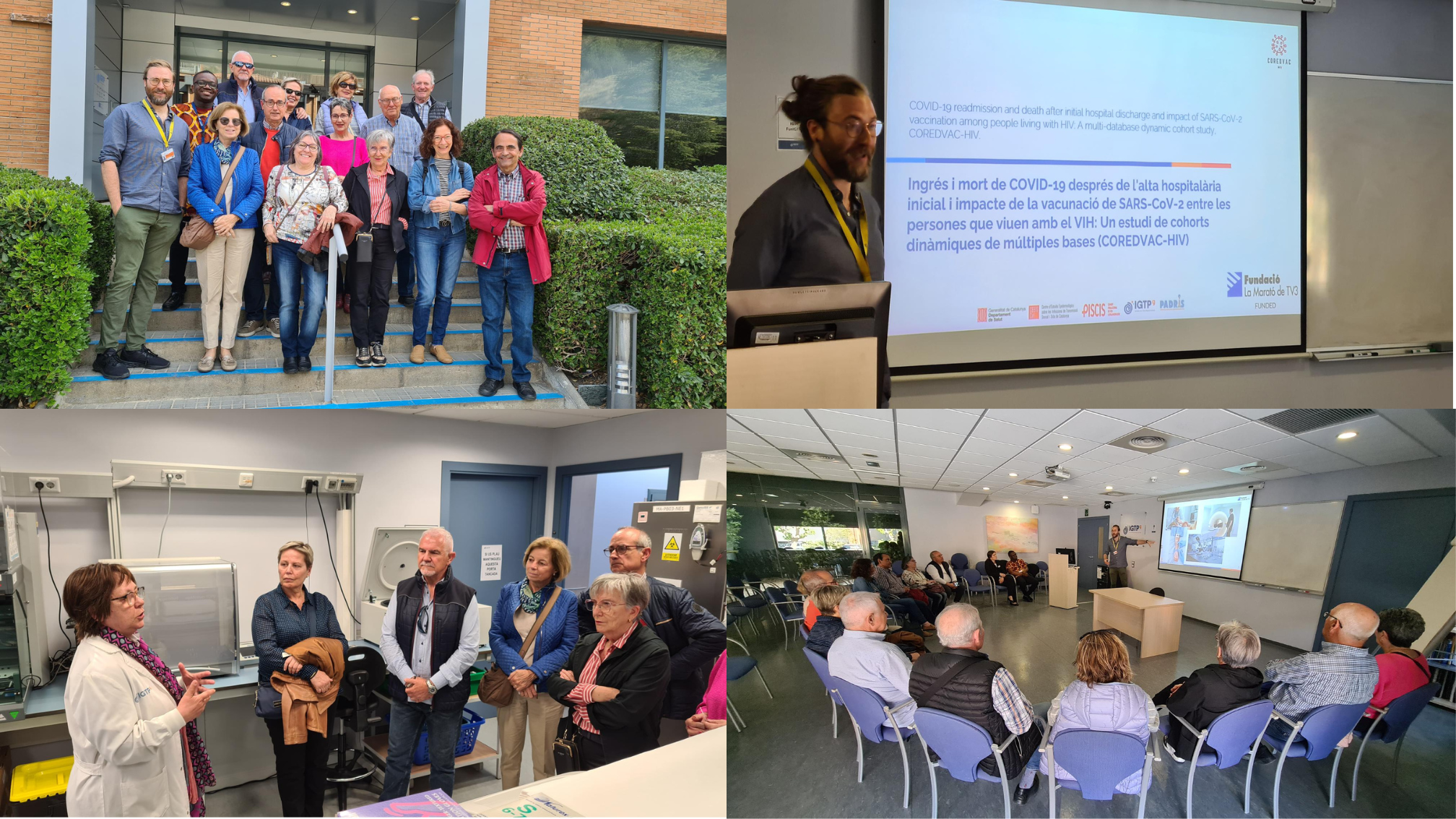
People infected with HIV are more susceptible to other infections. At the Centre for Epidemiological Studies on HIV/AIDS and STI of Catalonia (CEEISCAT), research is being conducted on how COVID-19 affects these individuals and their immune response to the vaccine to determine if they will be better protected in the future.
Researchers Daniel Kwayke Nomah, clinical epidemiologist at CEEISCAT, and Andreu Bruguera Riera, field coordinator of the PISCIS cohort at CEEISCAT, explained their project "COVID-19 hospital admission and mortality after initial discharge and impact of SARS-CoV-2 vaccination among people living with HIV: A multi-base dynamic cohort study (COREDVAC-HIV)".
Did you know that tumours can also develop in the nerves? (26 April)
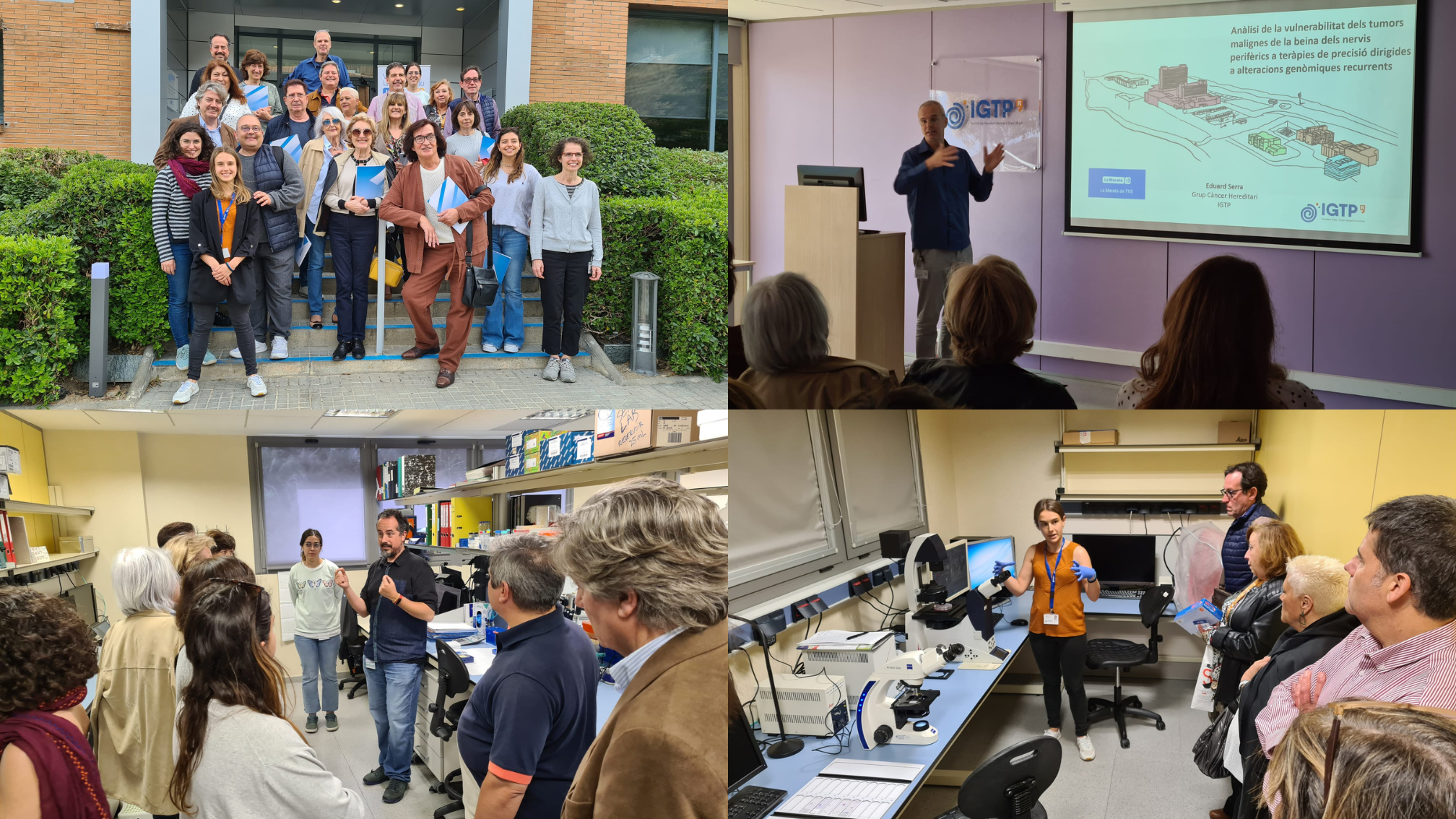
There are malignant tumours that can develop in the nerves, affecting both children and adults. These tumours are generally hard to diagnose, highly aggressive, can easily spread throughout the body, and there is a scarcity of effective tools to treat them.
The Hereditary Cancer research group at IGTP, led by Dr Eduard Serra, collaboratively coordinates the project "Analysis of the vulnerability of malignant tumours of the peripheral nerve sheath to precision therapies targeting recurrent genomic alterations" with various Catalan hospitals. In this project, the loss of function in three genes is being used as a precision medicine strategy. The group leader, along with Itziar Uriarte, Miriam Magallón, Helena Mazuelas, Bernat Gel, and Meritxell Carrió, showcased their research to La Marató de TV3's collaborators.
Not all breast cancers are the same. Let's give each tumour its own identity! (30 May)
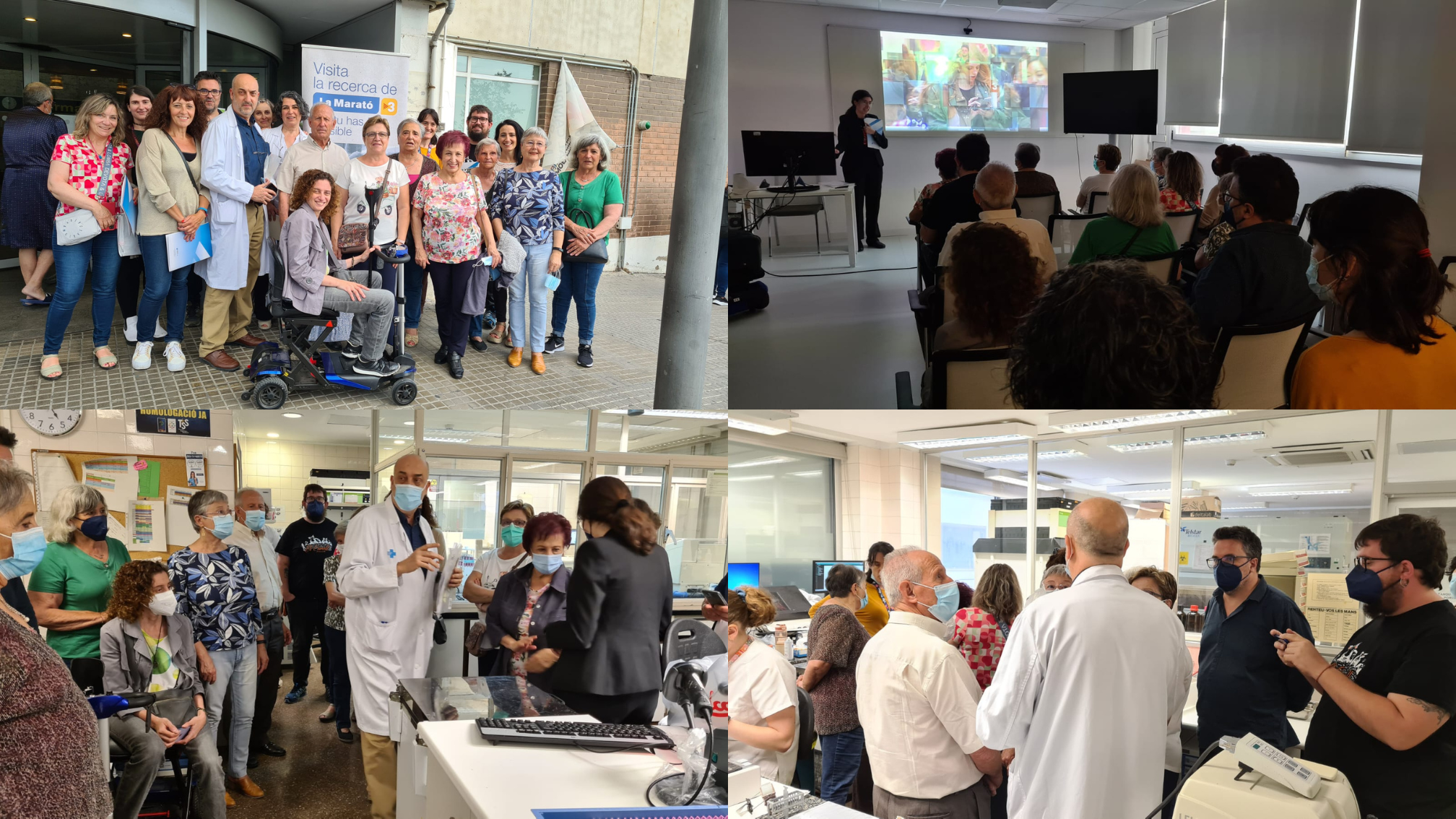
Breast cancer is one of the most common cancers worldwide, with an estimated 132 cases per 100,000 inhabitants in Spain. There are various types of breast tumours, each with different behaviours and progression. To classify them, professionals rely on various tools, such as clinical characteristics, the structure and organisation of the cells that form them, and the presence of specific proteins or genetic alterations in these cells.
The Molecular and Translational Pathology research group at IGTP, led by Dr Pedro Luis Fernández, is working to shed light on some of the already described subtypes in collaboration with the Institute of Photonic Sciences (ICFO) and the University of Barcelona (UB). Their studies focus on analysing the different expression of proteins and other molecules using both RNA expression tools and spectroscopic techniques. Their project funded by La Marató de TV3 is "Analysis of the vulnerability of malignant tumours of the peripheral nerve sheath to precision therapies targeting recurrent genomic alterations".
The visit was led by Dr Fernández, head of the Pathological Anatomy Service at Germans Trias Hospital, along with molecular biology specialists Aintzane Urbizu, Carolina Sanz, Ana Mª Muñoz and Laura Arnaldo.
Bladder cancer and chemotherapy treatment (27 June)
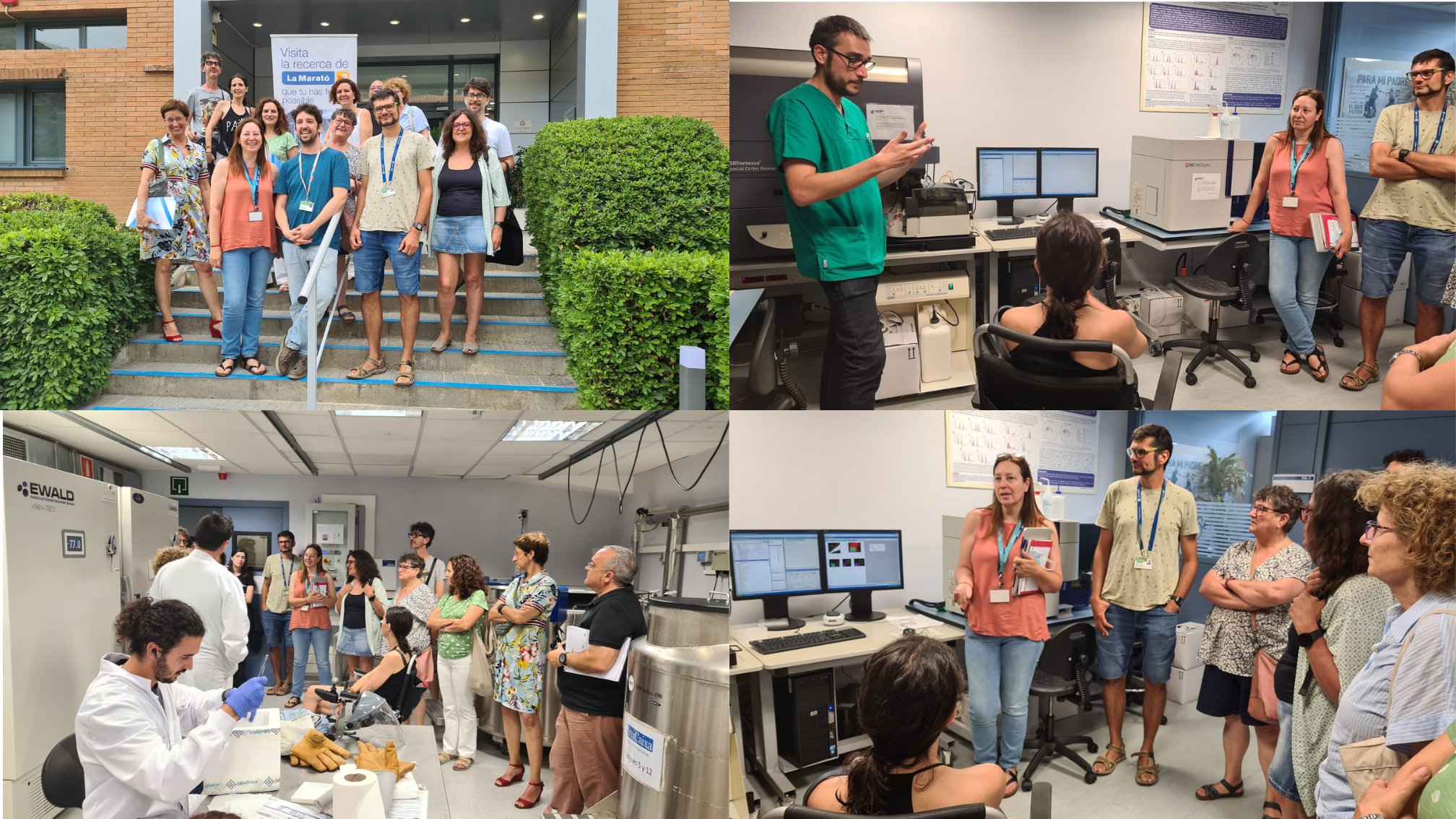
Bladder cancer is one of the most common cancers and a leading cause of cancer-related death in men. For individuals with muscle-invasive bladder cancer, the treatment typically involves chemotherapy for three months followed by the removal of the bladder. However, in over half of these cases, the chemotherapy is found not to be effective.
Dr Cecília Cabrera's Tissue Virology (VITI) research group at IrsiCaixa is dedicated to studying various parameters that will help identify those patients who do not benefit from chemotherapy so that they can be offered alternative treatments. The aim is to increase their chances of recovery. Dr Cabrera and Jordi Senserrich, a member of her group, and Dr Pol Servián, urologist at the Germans Trias Hospital, explained to the donors how they conduct their studies, which include the La Marató de TV3 project "Genetic and immune signatures to predict the response to neoadjuvant chemotherapy in bladder cancer".
